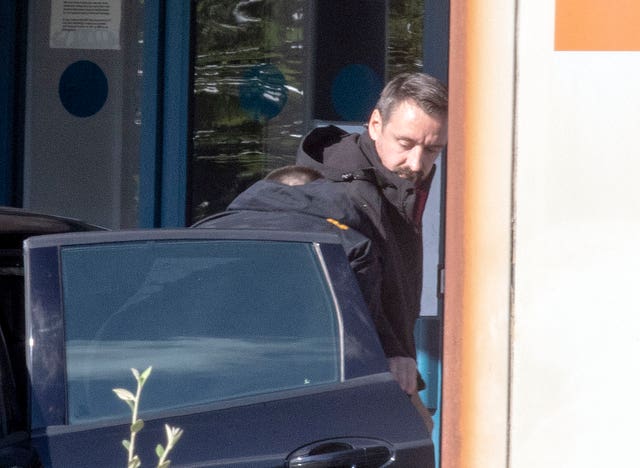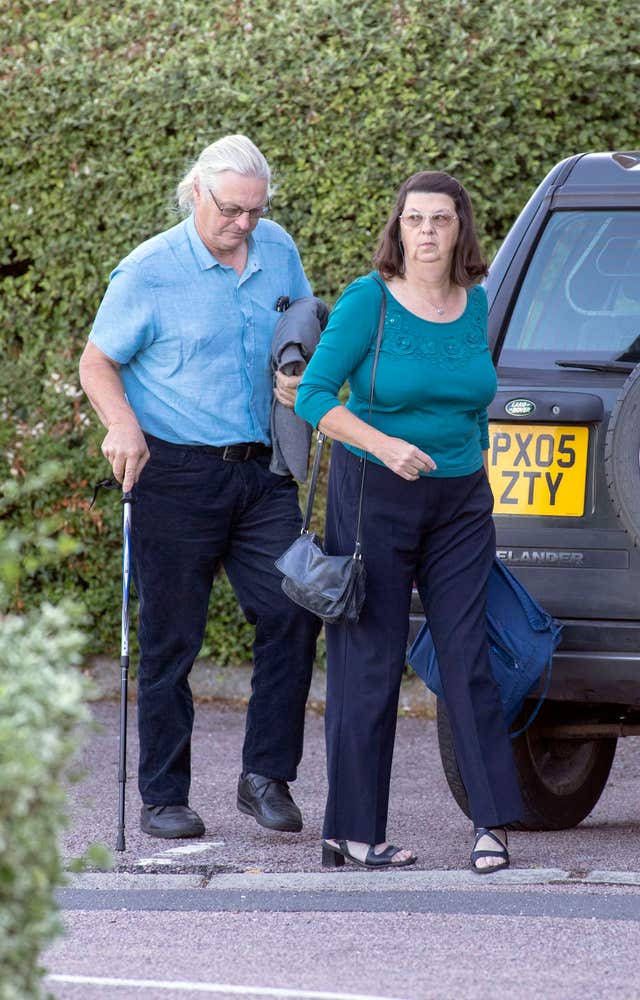Police sergeant ‘felt like criminal’ when questioned over death of epileptic man
Duncan Tomlin had been restrained in a police van and later died in hospital.

A sergeant told a misconduct hearing he “felt like a criminal” when he was questioned over the death of an epileptic man who had been restrained face down in a police van.
Christopher Glasspool was one of five Sussex Police officers who were investigated after Duncan Tomlin fell unconscious while being detained during a struggle in Haywards Heath in July 2014.
The 32-year-old, originally from Oxfordshire, died in hospital two days later.

Mr Tomlin ran off when police first arrived and his partner told two other officers he had epilepsy and could be having a seizure, the hearing was told.
But he was wrestled to the ground, sprayed with an incapacitant and arrested after punching an officer in the face.
He was handcuffed, placed in leg and thigh restraints and held face down on the floor before being carried into a police van with his legs curled up behind him before he collapsed, the panel heard.
Speaking on Wednesday about the incident for the first time, Sgt Glasspool said he did “everything he could” to save Mr Tomlin’s life but claimed he was never told about the possible seizure until after paramedics arrived.
The officer of 17 years, who has accepted he was responsible for supervising the situation, said he could hear Mr Tomlin “screaming and shouting incoherently” when he arrived to help other officers already on the scene.
Relatives began to cry as he told the hearing he began to “panic” when Mr Tomlin “suddenly” stopped shouting when inside the van.
Giving evidence, Sgt Glasspool said: “That was a huge change in his demeanour. His breathing appeared to be laboured.
“I started to panic. I was really, really concerned for his welfare.”
He said it was “horrendous” being questioned over the death, adding: “I felt like a criminal.”

He said: “Based on the responses I got I felt I had enough information to move forward.”
Responding to claims he “ignored” warnings Mr Tomlin may be having a seizure, he claimed he told paramedics as soon as he found out.
When asked why he took so long to move Mr Tomlin on his side even though there were seven officers present to assist, he said it was a “dangerous manoeuvre”.
Sgt Glasspool made no mention of epilepsy or a possible seizure in his written statement on the incident and refused to answer questions until the hearing, the panel was told.
He told the hearing hindsight was “a wonderful thing” but he insisted he did “everything he should have done”.
Mr Tomlin was in the police van for seven and a half minutes before Sgt Glasspool and another officer administered CPR, the panel heard.
His last visible movement, apart from the rise and fall of his chest, was when his hand moved a minute and 33 seconds after being carried into the van, the police force’s barrister Mark Ley-Morgan said.
Pathologists found drugs and positional asphyxia, where someone suffocates because of the position they are in, both played a part in his death.
All three officers are accused of “inexplicable delays” in removing restraints after realising there was a medical emergency.
They all deny misconduct and gross misconduct, insisting they acted appropriately in the circumstances.
Sgt Glasspool also denies allegations he failed to properly assess the situation and identify a medical emergency.
Two other police constables have been investigated over the incident.
Russell Watson was cleared of all allegations at a private hearing on Friday and Alexander Bennett resigned on December 31 2017.
The hearing is expected to last until Friday.





